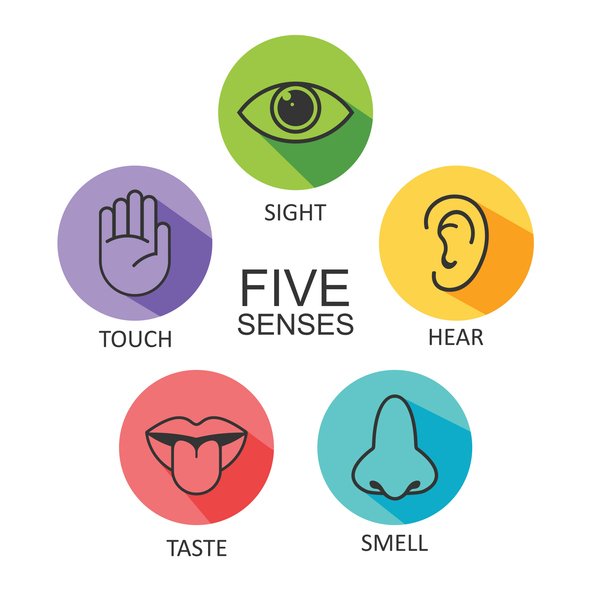Sexuality and Accessibility: Autism and Intimacy

Humans come in all shapes and sizes, and so do our brains. Being a human is very complicated! Sex and intimacy can be an equally confusing space at the best of times. It can be silly, embarrassing and downright vulnerable, so it’s crucial to keep an open and accepting mind when it’s down and dirty. So how does neurodivergence, and more specifically autism, affect sexuality?
When I looked online, there wasn’t much information for people with autism to learn or feel accepted, despite research highlighting the need for greater inclusion of the disabled community in sex education. What’s more, the current censorship of sexual and sexualized language online doesn’t help either, making education more difficult, especially for people with autism who may not be able to read between the lines of “healthy” brands, especially Yes if they are literal thinkers. Circumventing censorship is more damaging to communities and culture than clever. It’s not as inclusive as they think.
If you’d like to learn more, the nonprofit CensHERship is launching a campaign to end censorship of women’s health and sexual health content.
Autism causes differences in sensory processing, communication, and emotion regulation, so naturally you would expect these people to experience sex differently. Remember, autism is a spectrum disorder, so everyone’s experience is different.
Sensation intensity and sensation seeking
For some people, the type of touch may be very overwhelming, while others may be less sensitive. Through solo sex, people can experiment with different levels of tactile play and learn what feels pleasurable and what doesn’t. There is absolutely no harm in trying windmills, ticklers, bondage ropes and vibrators to see what they do for you!
You may be driven into certain sensory-seeking behaviors through instinct and experimentation. I have some clues as to why the small amount of research suggests BDSM/Kink/Fetish community spaces are attractive to autistic people, one of which is that niche sensory seeking activities are popular and can be self-soothing.

Shibari (Japanese rope bondage) is considered a work of art rather than a purely sexual act. It can create complex restraints through repeated movements and patterns that deeply soothe the person being restrained and produce aesthetically pleasing results for the restrainer.
communication method
Expression needs may be different for people with autism, who may develop niche communication styles that differ from what is considered the “norm.” Some people may be vocal about their needs, have strict boundaries, and demand that their partners be equally vocal, especially if people have trouble with literal interpretations.
Others may feel more comfortable expressing their needs before engaging in any sexual activity, writing things down, or stopping sex to express their needs. Many sexual and intimate behaviors rely heavily on non-verbal cues and body language, which may be fine for some but more confusing for others. Therefore, communication needs to be understood and listened to.

emotion regulation
Have you ever cried after sex? Sex can be overwhelming, especially with the post-orgasm hormone surge (pun intended). I’ve been known to shed a few tears after an orgasm! For people with autism, not only may they be overwhelmed by their senses and hypersensitive to these hormonal changes, but they may be quicker to express emotions but slower to regulate them. Others may experience overwhelming inner transformation but find it difficult to express it – so knowing how to express yourself when you need to can help everyone!

relationship dynamics
Clear communication around relationship details and expectations will also help with emotional regulation, as autism can affect attachment style. If you’re not sure – ask! Autism may mean that you develop some unique preferences and different sexual interests that others may have never heard of or tried. Just because you like things that don’t conform to social norms doesn’t mean there’s anything wrong with you! If what you’re doing is safe and legal, there’s no reason to keep it to yourself. Clear communication, being enthusiastic about consent, and sharing vulnerable interests will help you figure out who you’re compatible with!
anxiety
Neurotypical people can and do struggle with the fear of rejection, although this fear may be heightened as part of a neurodivergent experience. The stress of imagined rejection may make it difficult for some people to communicate openly and honestly. It’s much better to make sure your needs are met than to avoid potential rejection because it’s healthier (physically and mentally) for everyone involved. Additionally, this practice will help you build your self-esteem and confidence.

conventional
Some people with autism have a strong desire for structure, so spontaneous play can be overwhelming. Making sure everyone has sex at the appropriate time can help minimize discomfort and potential autism meltdowns. On the other hand, some people may have specific structural preferences and want every step to be discussed in detail and understood before taking action to avoid surprises.

Routines are ultimately about building good habits. You can avoid a lot of discomfort by being clear about your preferences, contraceptive methods, and communication methods.
bottom line
agree: Enthusiastic consent should be obtained and maintained during sex and play. When you want to try something new, reach out to your partner and don’t assume they’ll be okay with something because of past experiences. Talk about how this looks/sounds/feels!
contraception:Wrap it before tapping! Have a browse to find out what works for you, but with STIs on the rise in the general population and the lack of tailored sex education in every community, it’s important to reduce the risk of contracting diseases like chlamydia or experiencing an unwanted pregnancy. Don’t let anyone tell you otherwise.
comminicate: If you have anything to say, just say it! Remember, your comfort is important and you can withdraw consent and set boundaries at any time.
Comfortable: If your body tells you it’s not okay, listen to it! Stop, communicate, change or stop.
have fun: Most importantly, have fun! Sex should be a safe, expressive place that feels good. If it doesn’t feel good/fun, don’t have sex! Everything is valid. We are all human and this makes sense to you.
Please leave a comment for others about your neurodivergent experiences with intimacy and sex! You know we love learning as much as you do. I would like to see more research on the impact of autism on sex and intimacy.


 Anal Beads
Anal Beads Anal Vibrators
Anal Vibrators Butt Plugs
Butt Plugs Prostate Massagers
Prostate Massagers
 Alien Dildos
Alien Dildos Realistic Dildos
Realistic Dildos
 Kegel Exercisers & Balls
Kegel Exercisers & Balls Classic Vibrating Eggs
Classic Vibrating Eggs Remote Vibrating Eggs
Remote Vibrating Eggs Vibrating Bullets
Vibrating Bullets
 Bullet Vibrators
Bullet Vibrators Classic Vibrators
Classic Vibrators Clitoral Vibrators
Clitoral Vibrators G-Spot Vibrators
G-Spot Vibrators Massage Wand Vibrators
Massage Wand Vibrators Rabbit Vibrators
Rabbit Vibrators Remote Vibrators
Remote Vibrators
 Pocket Stroker & Pussy Masturbators
Pocket Stroker & Pussy Masturbators Vibrating Masturbators
Vibrating Masturbators
 Cock Rings
Cock Rings Penis Pumps
Penis Pumps
 Wearable Vibrators
Wearable Vibrators Blindfolds, Masks & Gags
Blindfolds, Masks & Gags Bondage Kits
Bondage Kits Bondage Wear & Fetish Clothing
Bondage Wear & Fetish Clothing Restraints & Handcuffs
Restraints & Handcuffs Sex Swings
Sex Swings Ticklers, Paddles & Whips
Ticklers, Paddles & Whips

















